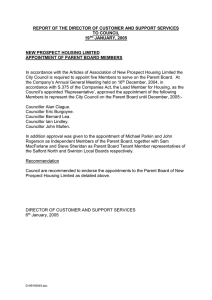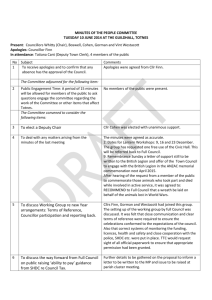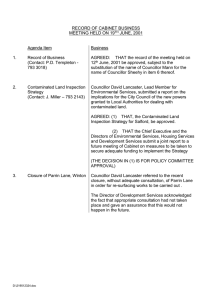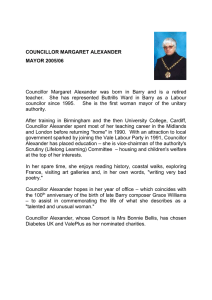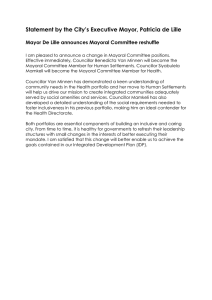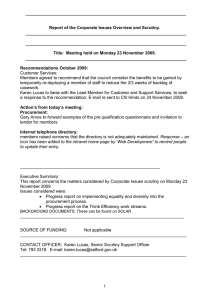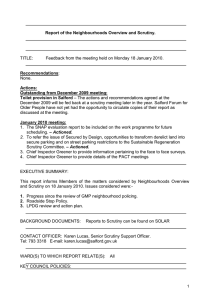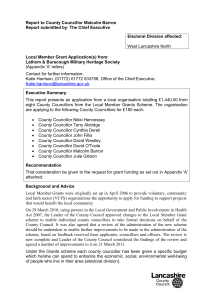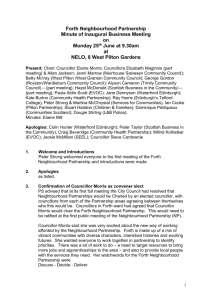Forth Neighbourhood Partnership
advertisement
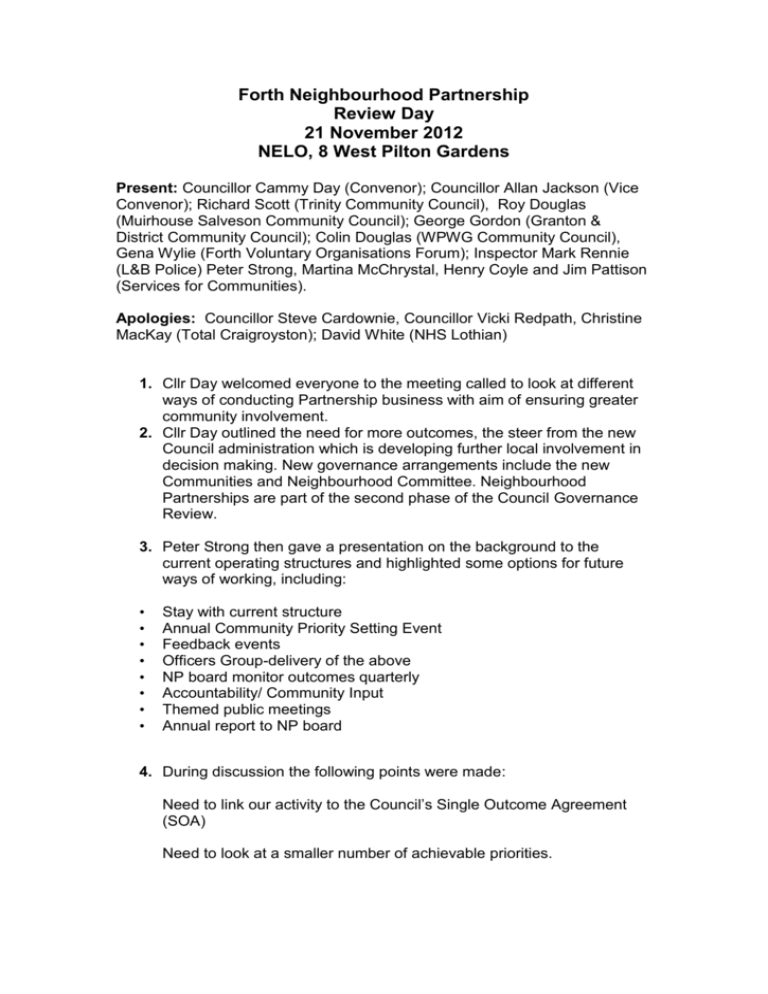
Forth Neighbourhood Partnership Review Day 21 November 2012 NELO, 8 West Pilton Gardens Present: Councillor Cammy Day (Convenor); Councillor Allan Jackson (Vice Convenor); Richard Scott (Trinity Community Council), Roy Douglas (Muirhouse Salveson Community Council); George Gordon (Granton & District Community Council); Colin Douglas (WPWG Community Council), Gena Wylie (Forth Voluntary Organisations Forum); Inspector Mark Rennie (L&B Police) Peter Strong, Martina McChrystal, Henry Coyle and Jim Pattison (Services for Communities). Apologies: Councillor Steve Cardownie, Councillor Vicki Redpath, Christine MacKay (Total Craigroyston); David White (NHS Lothian) 1. Cllr Day welcomed everyone to the meeting called to look at different ways of conducting Partnership business with aim of ensuring greater community involvement. 2. Cllr Day outlined the need for more outcomes, the steer from the new Council administration which is developing further local involvement in decision making. New governance arrangements include the new Communities and Neighbourhood Committee. Neighbourhood Partnerships are part of the second phase of the Council Governance Review. 3. Peter Strong then gave a presentation on the background to the current operating structures and highlighted some options for future ways of working, including: • • • • • • • • Stay with current structure Annual Community Priority Setting Event Feedback events Officers Group-delivery of the above NP board monitor outcomes quarterly Accountability/ Community Input Themed public meetings Annual report to NP board 4. During discussion the following points were made: Need to link our activity to the Council’s Single Outcome Agreement (SOA) Need to look at a smaller number of achievable priorities. Should focus on outcomes – how does what we do improve things – showing clearly what added value NPs produce. Future focus should include more specific activity around community safety and dealing with anti- social behaviour – too often this has been lost in Clean, Green & Safe meetings due to size of agenda. Need to find a way to involve a wider spread of the community in activities and better ways of ensuring service providers are accountable for service they provide. Focus has too often been on SFC and we need to involve other service providers – ask them how they will contribute to NP priorities. The community has to feel they can influence services otherwise they won’t engage – need a sense that something is being achieved. Noted the board must take responsibility for outcomes. Peter’s team to draw up a proposal and timescale for implementing this and bring back to NP business meeting in January. 5 Other points discussed included: Look at possibility of using a participatory budgeting approach for Community Grants and NEP. Richard suggested devolving some of these budgets to Community Councils. To feed into next weeks planned NEP review. It was noted that there is still £5K left in Community Grants budget with applications to value of £17K already received – it was agreed that options for allocating this should be circulated to the Board. When discussing priorities it may be worth looking at model used by Trinity CC. Partnership should look at how it feeds information back to the community – report card approach could work. Whatever structures are agreed we need to ensure Community Councils and elected members have a key role. Involve partners other than SFC more and look at how to make them more accountable. When outcomes agreed we need to be clear about who is responsible for achieving them. 6 Actions Agreed Agreed current sub group activity to cease in December/early January. All action groups to be briefed and final meetings could be used as part of priority setting process. Four key priority setting event in each CC area – events to be planned with respective CCs and to involve RTOs, residents and community groups. In addition targeted events for communities of interest to include young people and BME community. These meetings to be held in first quarter of next year – January to March 2013. Get agreement from community on a smaller number of achievable objectives which will then be refined and developed into a new Action Plan by the Neighbourhood Partnership. Once priorities are agreed the Partnership will then decide on what are the best structures to take them forward, agree whether short life group needed for any particular strand and agree how best to review progress. Agreed an Officers group could monitor outcomes via a series of feedback events on each of the main identified priorities.
